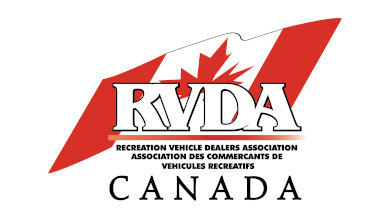Exclusive: RVDA of Canada’s Hamm in 2021 RV/ MH Hall of Fame Class

When the 2021 class of the RV/ MH Hall of Fame is inducted this August in Elkhart, Ind., – everyone’s fingers are crossed – Eleonore Hamm will go in representing two types of people the hall doesn’t have many of: a woman and a Canadian.
But that suits Hamm, president of the RV Dealers Association of Canada, just fine.

“I was really surprised (laughter). I was like ‘Oh wow!’, you know?,” said Hamm. “Because so many of those people have been mentors to me. I didn’t come from the RV industry (originally), so, I just learned so much along the way, and to be even be considered in that same group – I was truly, truly honored, truly honored. And there are not that many Canadians in there, so that was a nice feature as well.”
No matter what her professional start was in life she’s a fixture in the industry now, having celebrated 25 years with RVDA of Canada in 2020.
Hamm started with the organization as an executive assistant and a couple of promotions later assumed the title of president.
RVDA of Canada has about 680 members, she said; roughly 380 of them are dealers, which represents 90 percent of the dealers in Canada.
Canadian COVID
Just as on this side of the border, 2020 was a wild ride for Hamm’s members. COVID-19 actually started rearing its ugly head in Canada earlier than in the U.S.
The RVDA’s offices are in Vancouver, British Columbia, and Hamm said there is a significant number of the population who travel regularly between there and Asia.
“In January people were starting to wear masks here,” she said.
By mid-March, everything had shut down, including the border itself to non-essential travel.
“In that initial period there were just so many different balls that we were trying to juggle as an association, to make sure that dealerships could stay open, at least for service, to be considered an essential business,” Hamm said. “We worked with the campgrounds – they were closed, but people could stay there and quarantine.
“We have smaller manufacturers in Canada … but I would say probably 95 percent of the product sold in Canada is manufactured in the U.S., so when plants are shut down in the U.S. that affected us as well. The other thing was the border stayed open to trade, but you would need to find a driver willing to cross the border.”
When things started to open back up, demand for RVs went through the roof – just as it did in the U.S. Dealers found it tough to maintain inventory. It became the summer of the RV.
“The interesting part too is in terms of rentals,” Hamm said. “The rental industry (in Canada) is often, I would say, 95 percent from international tourism. And so with that being locked down that was a concern there, initially.
“But because there was such a renewed interest in RV travel … I’m not sure that they captured everything that would have been lost in 2020 but it was definitely a huge opportunity for people locally to be able to rent and to go RVing.”
Common Issues Across Borders
Like the U.S., Canadian dealers continue to have inventory issues. It’s been difficult not just in terms of units on the lot but in getting needed products for their shelves. The supply chain remains a stubborn sticking point, Hamm said, “and it goes all the way down.”
“I (was talking to) someone on the supplier side – even the products are slow getting in; it might come in on a boat, but there are fewer boats coming in from Asia,” she said. “And then there’s not enough people on the dock to unload it, or then the drivers to get (the incoming product delivered). It’s just, everything is compounded, right? And then we can’t get it to the OEM’s, and it just carries on. Hopefully some of those supply chain issues will start working themselves out.”
An issue Hamm has been passionate about for a long time is the need for more RV technicians. At the moment, only two colleges in Canada offer an apprenticeship program for RV technicians, and both of those are on the western end of the country.
“If you’re in Newfoundland, you’re on the island over there and you’re trying to get trained in Alberta, it makes it very difficult,” Hamm said. “So, we’re always looking at trying to expand and have more training resources.”
She said the RV Technical Institute’s new online-only training program, introduced last year, will go a long way in helping more Canadians earn tech certification. And she’ll continue to work through her industry partners to add more training options.
“There’s an opportunity there for potentially other colleges to become training partners,” said. “We do know we need more techs.”


